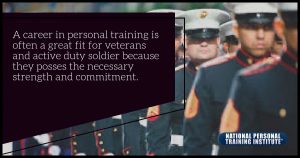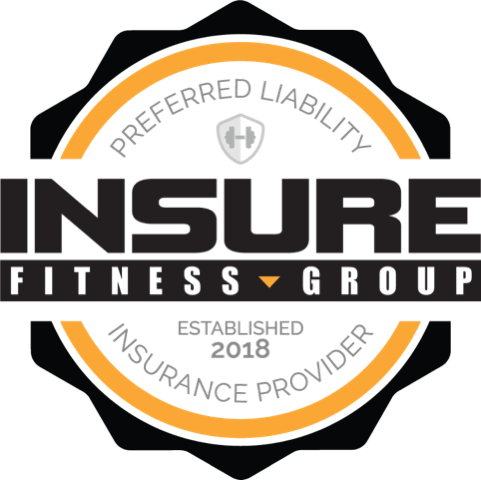Returning soldiers have long struggled with their transition back into civilian life. According to the Bureau of Labor Statistics, in 2012 the unemployment rate of new veterans ages 18 to 24 was over 5% higher than the average unemployment rate for non-veterans in the same age group. While over the last two years this number has started to decline, former service members still face barriers when seeking employment, including lack of experience and stigmas about their mental health.
Veterans, however, typically possess the necessary qualities that make for successful personal trainers. Returning servicemen and women often live a healthy lifestyle and are natural motivators. They also relate well to the structure necessary for effectively implementing a fitness program. Veterans understand the benefits of an active lifestyle and are dedicated to helping others or serving for a greater cause.

With about one-third of adults and 17 percent of all children in the U.S. considered obese, America has become an extremely inactive society. The American Medical Association recently declared obesity a “disease.” Therefore, personal trainers are in high demand, in order to fight the war on obesity. Who better to be on the front lines than our former servicemen and women? A career in personal training is often a great fit for veterans and active duty soldiers because they possess the necessary strength and commitment.
Army Reverse List Master Sergeant SuRae Stewart decided to make fitness trainer her second career, while still serving on active duty in the 1980’s. Stewart says, “I’ve known for a long time that the transition from being a drill sergeant and training soldiers to being a personal trainer or group instructor and training regular people was very valuable.” Today SuRae is using her GI Bill® benefits to help finance attendance at the National Personal Training Institute.
The Post-9/11 GI Bill® provides financial support for educational and housing expenses to individuals with at least 90 days of aggregate service after September 10, 2001, or individuals discharged with a service connected disability after 30 days. You must have received an honorable discharge to be eligible for the Post-9/11 GI Bill®. If you are a spouse or child of a service member, you may be eligible for a transfer of the service members’ Post-9/11 GI Bill® benefits to you.
*GI Bill®” is a registered trademark of the U.S. Department of Veterans Affairs (VA). More information about education benefits offered by VA is available at the official U.S. government website at www.benefits.va.gov/gibill.
If you are a veteran or spouse of an active duty member interested in learning more about our education and training offers for military personal, check out our veterans page or contact us today!


